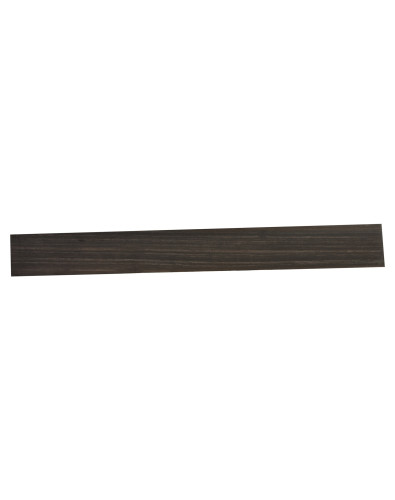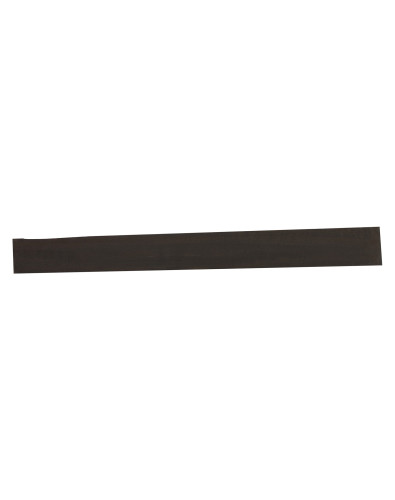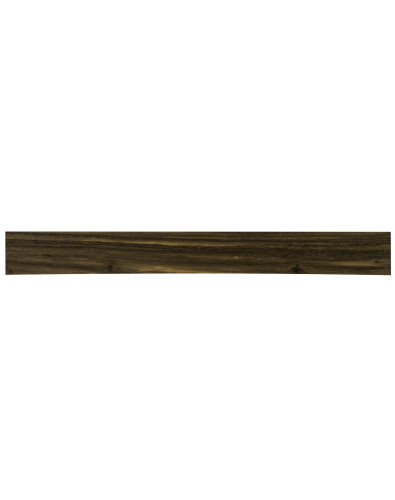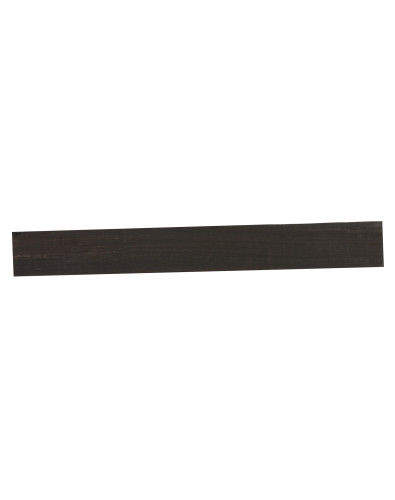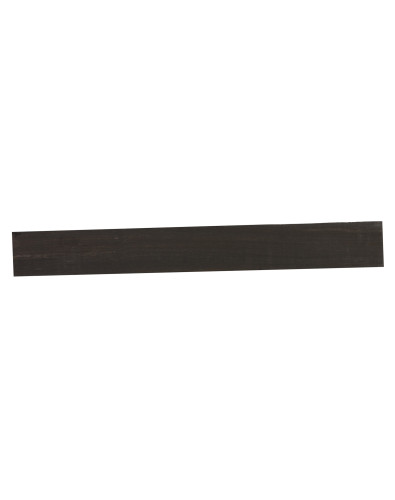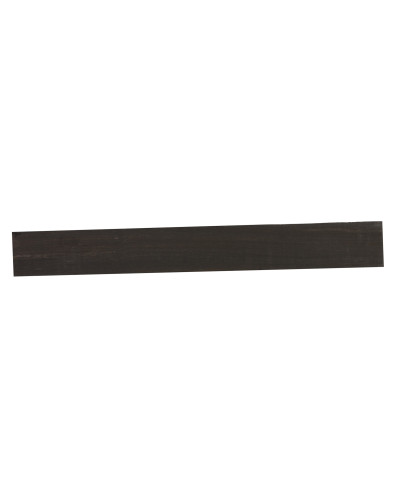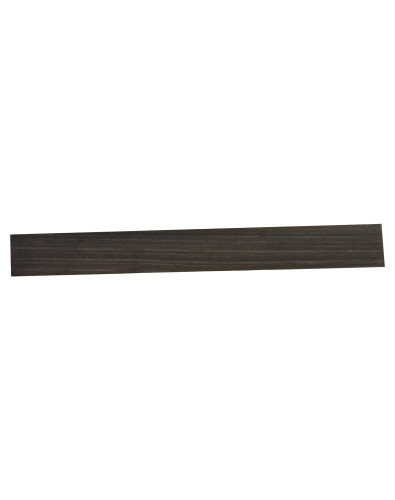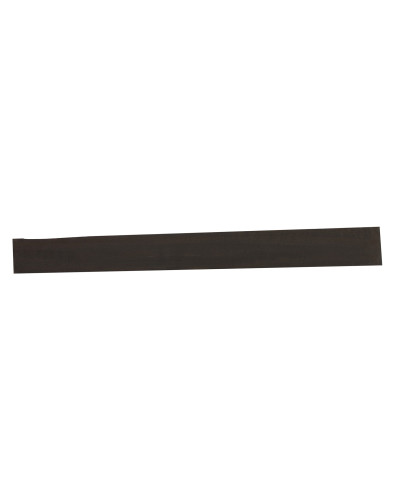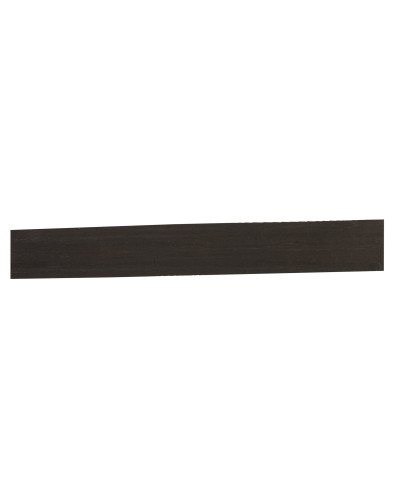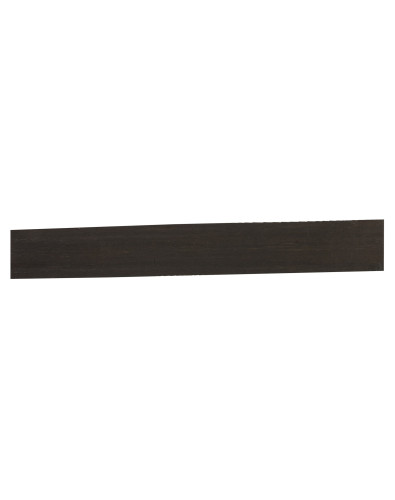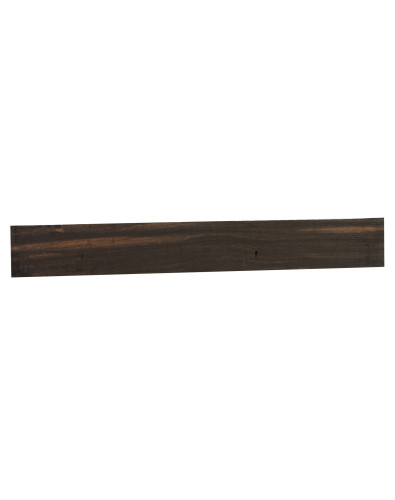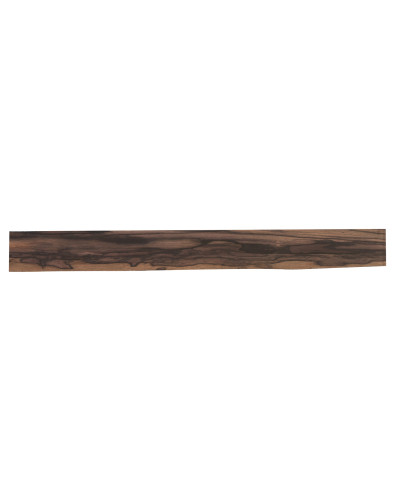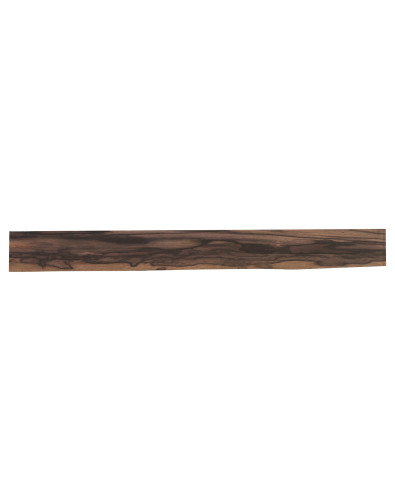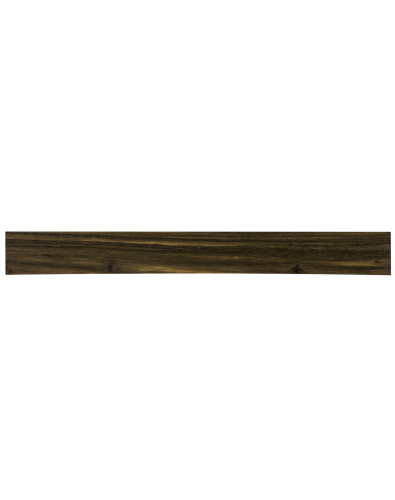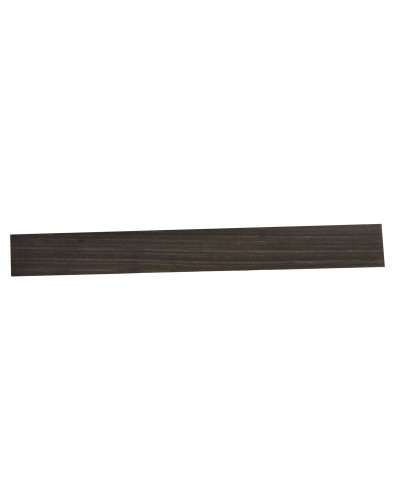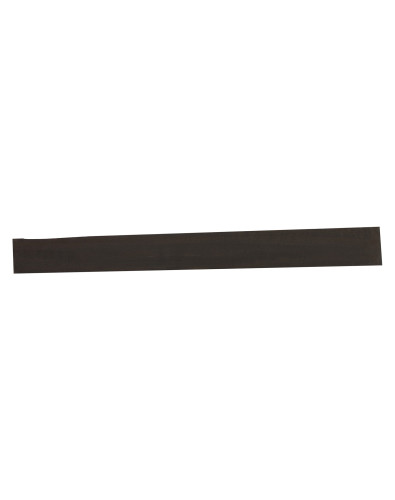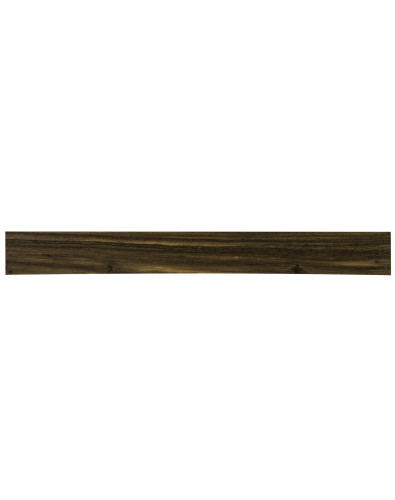African Ebony
Ebony has always been the most used wood in instruments building. That’s due to the density, stiffness, and the acoustic proprieties that a fingerboard needs. Without any doubt, Ebony has a great resistance to wear and frictions produced by guitarist and by string tension, so it’s very easy to understand the massive use of this wood in this part of Guitar.
Regarding to the acoustic, African Ebony adds a brilliant and dynamic touch to the sound of your instrument. What is more, Ebony is a perfect material for fingerboards due to is stability, its physical appearance, and its great attachment to frets.
For all these reasons, in Maderas Barber we have a wide range of qualities in African Ebony fingerboards for Bass. Discover all them with us!
BOTANIC NAME: Diospyros crassiflora hiern.
COMMON NAMES: African Ebony, Black Ebony.
ORIGIN: Central and Western Africa.
DESCRIPTION: Density 1030-1050 Kg/m3. Sapwood is light colour and hardwood is jet-black.
Occasionally dark brown or greyish-brown streaks may be present. Grain is usually straight but can also be interlocked. Fine even texture with very high natural luster.
RECOMMENDATIONS: Easy sawing but can be difficult to work due to its extremely high density. Has a dulling effect on cutters. Tear out may occur on pieces that have interlocked or irregular grain. Due to the high oil content found in this wood, it can occasionally cause problems with gluing. Finishes well, and polishes to a high luster. Responds well to steam bending.
DRYING: Drying process speed can vary from normal to low speed. Tendency to split.

